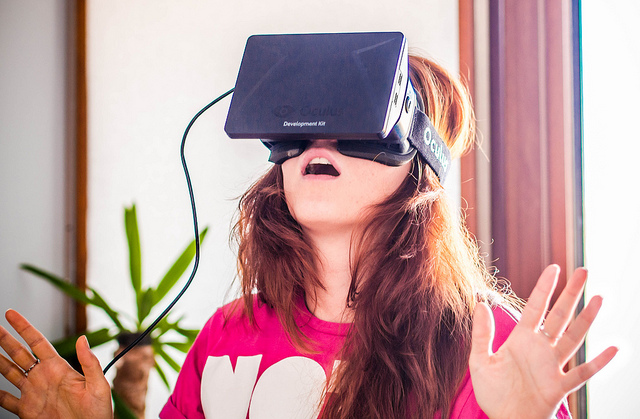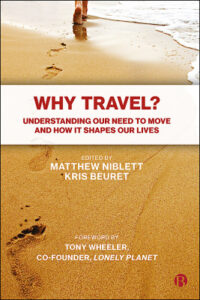Virtual reality is the future of travel says Facebook CEO
21st April 2015

The Oculus Rift virtual reality headset could help transform travel. Image credit: Sergey Galyonkin, licensed under Creative Commons via flickr
In a recent online Q&A, Facebook CEO Mark Zuckerberg described his vision for a future in which much travel would be virtual. ‘It will be pretty wild’ claimed Zuckerberg, his enthusiasm echoing Facebook’s decision to purchase virtual reality headset maker Oculus last year for US$2billion. The company’s mission, he explained, is ‘to give people the power to experience anything’, even if they aren’t able to physically travel somewhere – indeed, even if that thing or place doesn’t actually exist ‘in our analog world’.
The ability to travel virtually anywhere in – or out of – this world could certainly be appealing: in addition to the exciting ‘non-real’ possibilities, it would be quick, cheap and environmentally less damaging than many forms of physical travel. With the ever-increasing popularity of leisure travel (over one billion tourists travel internationally each year and demand is rising fast in emerging economies like China), the environmental impacts of travel are huge. Could ‘virtual travel’ of the kind indicated by Zuckerberg step in to help meet this demand in a way that doesn’t destroy the places we are travelling to see?
When asked about virtual travel, many will say that nothing could substitute for the experience of actually being in a place. Perhaps this has to do with the myriad, subtle environmental influences on our experience of place that we are only now starting to understand scientifically: the impacts of sounds, smells, ions in the air, climate and quality of light for example, and of course the experience of meeting local people and eating local food. The journey itself also holds a special meaning for many, signifying a transition physically and mentally. Research has shown that travel has benefits for our physical and psychological well-being and it fulfils many social and cultural roles too. With increasingly sophisticated technologies, virtual reality could go some way to meeting many of these needs and augmenting the experience of physical travel, even if not ever fully replacing it.
The ITC believes that understanding why we travel is vital if we are to anticipate future travel behaviours and create travel experiences – virtual and physical – that are more satisfying. The ITC’s Why Travel? project explores the various and complex motivations that shape our travel behaviours from a variety of perspectives across the sciences and humanities. Our aim is to better understand human travel and – crucially – to inform better decision-making about travel in to the future. For more information on the project, including expert views and current research, see www.whytravel.org.


